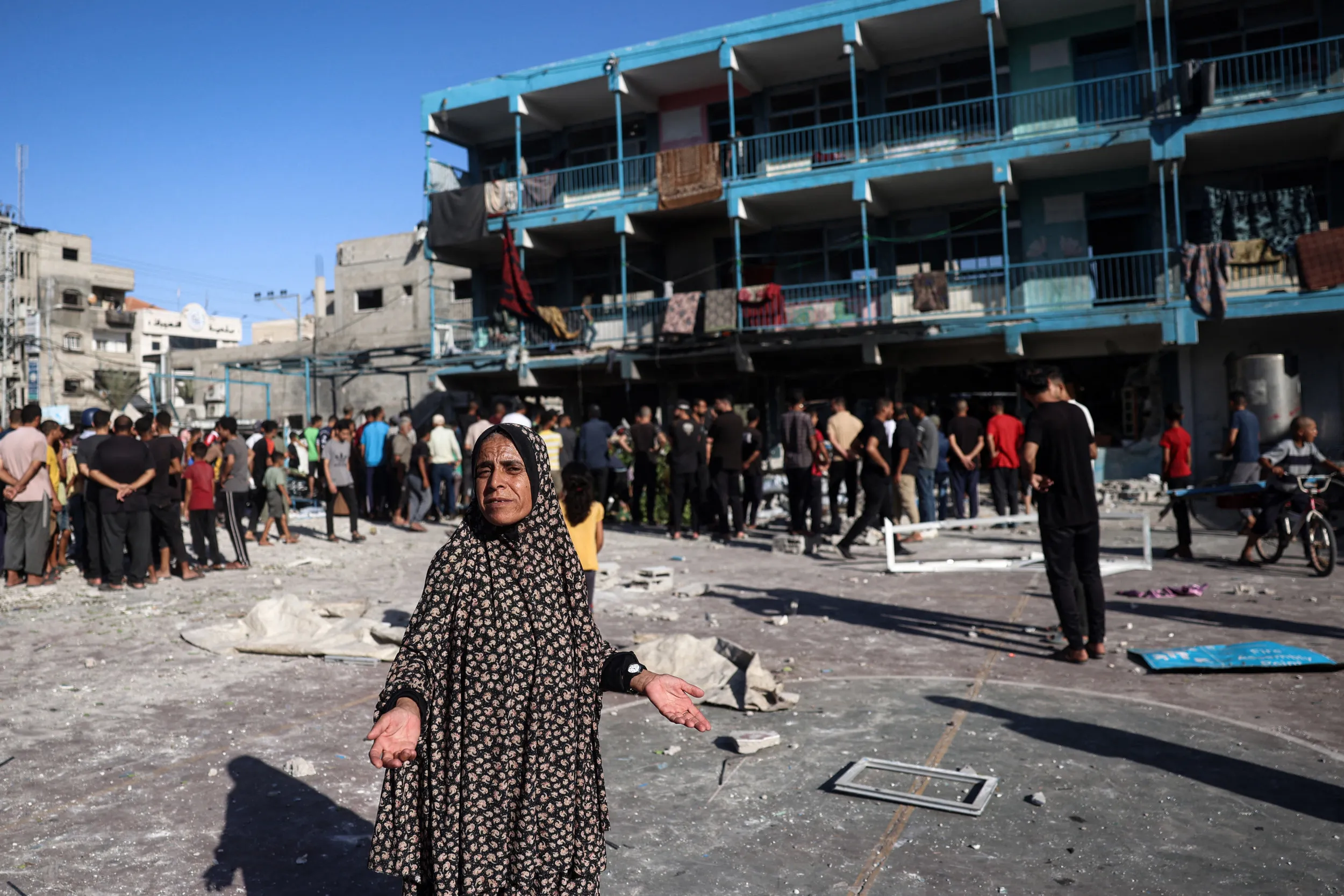Gaza Airstrikes Result in Tragic Loss of Life at UN School

Tragic Impact of Gaza Airstrikes
An Israeli airstrike hit a United Nations school in central Gaza on Wednesday killing at least 34 people, including 19 women and children, hospital officials said. The strike targeted the al-Jaouni Boys Preparatory School in the Nuseirat refugee camp, which was sheltering displaced Palestinian families, officials said. While the Israeli military claims it was targeting Hamas militants, this assertion has not been independently verified.
Death Toll and Civilian Casualties
- At least 14 victims, including two children and a woman, were treated at Awda and al-Aqsa Martyrs hospitals.
- Many Palestinians have suffered injuries, with at least 18 people wounded in the strike.
- One victim, Momin Selmi's daughter, highlights the personal tragedies causing grief for families in Gaza.
Ongoing Conflict and Military Operations
The al-Jaouni school, run by the U.N. Relief and Works Agency for Palestine Refugees (UNRWA), has endured multiple attacks during the conflict. Schools in Gaza, often utilized as shelters by tens of thousands of displaced Palestinians, have been frequent targets in the Israeli airstrikes. Israel blames Hamas for civilian casualties, claiming militants use these facilities for military operations.
A recent survey by the Education Cluster, involving UNICEF and Save the Children, reveals more than 90% of Gaza's school buildings have sustained damage, exacerbating the humanitarian crisis. Since the onset of Israel's campaign in Gaza 11 months ago, devastating statistics indicate over 41,084 Palestinians have died, with approximately 95,029 wounded according to Gaza's Health Ministry.
Broader Implications
This recent airstrike further intensifies the scrutiny facing Israel and its military operations amid the Israeli-Palestinian conflict. In the West Bank, military actions continue as Israel seeks to dismantle militant groups, which the Palestinian community argues aims to secure indefinite military control in the region.
This article was prepared using information from open sources in accordance with the principles of Ethical Policy. The editorial team is not responsible for absolute accuracy, as it relies on data from the sources referenced.